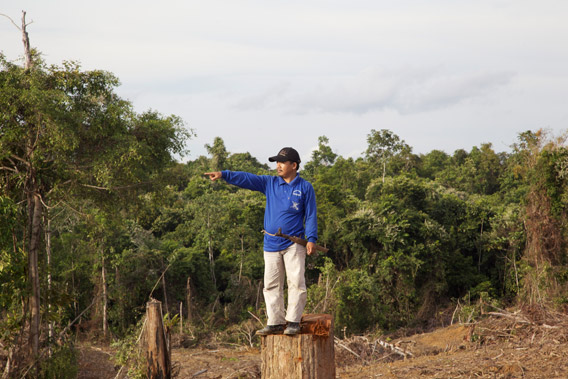
Masrani, a Muara Tae community leader, stands on an Ulin stump in the Dayak Benuaq’s customary land, cleared by palm oil firm PT Munte Wani Jaya Perkasa last year (credit: EIA/Tom Johnson)
The Environmental Investigation Agency (EIA) has released a set of photos from a visit to a contested area of forest set to be converted for oil palm plantations in Indonesian Borneo.
The pictures, taken this month, show an area of forest used by hundreds of villagers from the community of Muara Tae in East Kalimantan. The community, made up of indigenous Dayak Benuaq, is fiercely opposing efforts to seize and log the forest, arguing that oil palm plantations will destroy their livelihoods.
“There are more than 800 families in Muara Tae relying on the forests for their food, water, medicine, culture and identity,” said EIA’s Faith Doherty in a statement. “Put simply, they have to keep this forest in order to survive.”
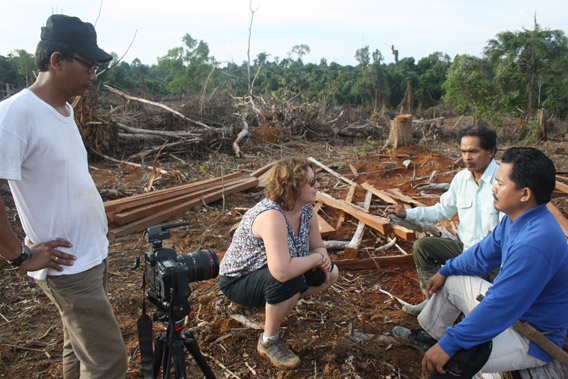
EIA Forest Campaign team leader Faith Doherty interviewing Muara Tae elders (credit: EIA/Tom Johnson)
EIA is working with Telapak, an Indonesian NGO, to help the Muara Tae community win recognition of their rights to the land as traditional users. The Dayak Benuaq have managed forests in Borneo for generations.
Doherty said the Dayak Benuaq’s struggle reflects poorly on the Indonesian government’s commitment to reduce deforestation.
“The rhetoric from the President of Indonesia on curbing emissions by reducing deforestation is strong but on the front line, where indigenous communities are putting their lives at risk to protect forests, action is sorely missing,” she said. “Giving these communities, such as the Dayak Benuaq, the rights they deserve is a vital step to reduce catastrophic levels of deforestation in Indonesia.”
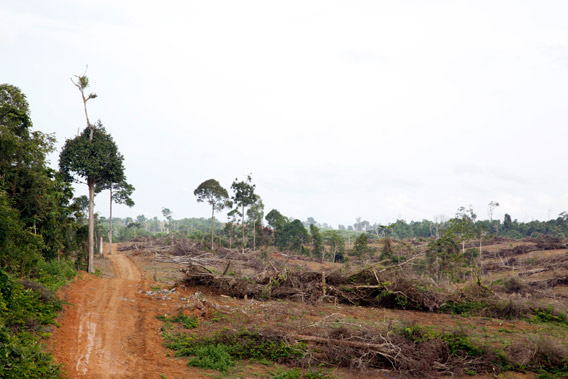
Forest cleared in October 2011 on Muara Tae customary land, in a concession issued to PT Munte Wani Jaya Perkasa (credit: EIA/Tom Johnson)
PT Munte Waniq Jaya Perkasa is currently bulldozing forests around Muara Tae to establish an oil palm plantation. The company, which is owned by Malaysia-based TSH Resources, is backed by police and other security personnel.
At the root of the conflict is a disagreement over 638 hectares of forest. The Dayak Benuaq have used the land for generations but their ownership rights have not been recognized. Accordingly they have been largely powerless in trying to stop PT Munte Waniq Jaya Perkasa, which has acquired a plantation license, from converting the forest.
EIA and Telapak say the standoff represents an opportunity for the Indonesian government to demonstrate its commitment to recognizing customary land rights. In July, Kuntoro Mangkusubroto, head of the Indonesian President’s Special Delivery Unit and the REDD+ Task Force, pledged to “recognise, respect and protect” traditional or Adat rights.
Additional leverage in the battle could come from Norway’s 1.8 percent stake in TSH Resources. Norway has committed $1 billion to help Indonesia reduce deforestation and peatlands degradation and is therefore a target for criticism when its pension fund investments are linked to forest destruction and social conflict.
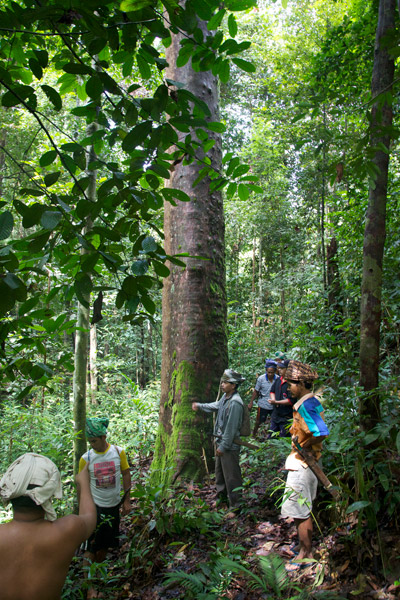
Asuy, Masrani, Singko, Sedan, leaders of Indigenous Peoples of Muara Tae formed a ceremony to invoke the spirit of the Ulin Tree to protect their forests (credit: EIA/Tom Johnson)
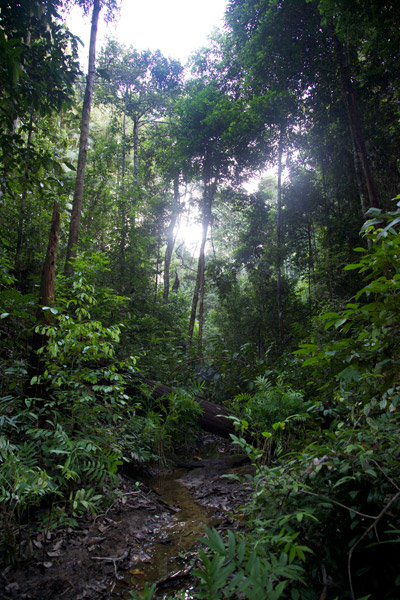
Forest scene in Muara Tae customary land, slated for conversion (credit: EIA/Tom Johnson)
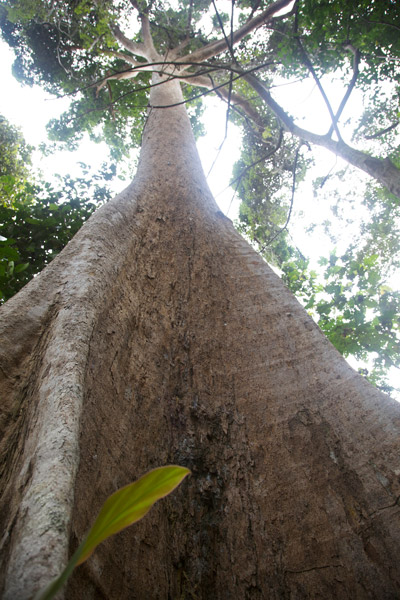
Honey bee tree in Muara Tae customary forest (credit: EIA/Tom Johnson)
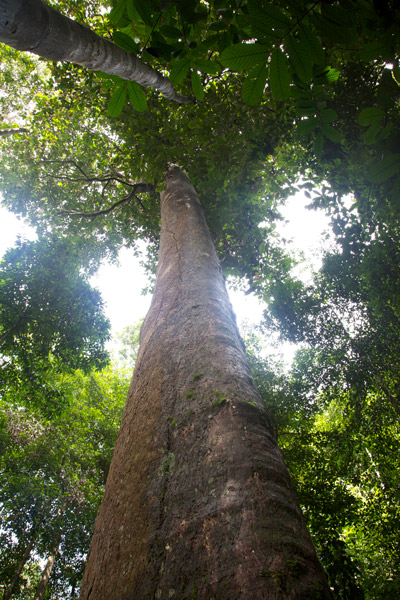
Ulin tree in Muara Tae forest (credit: EIA/Tom Johnson)
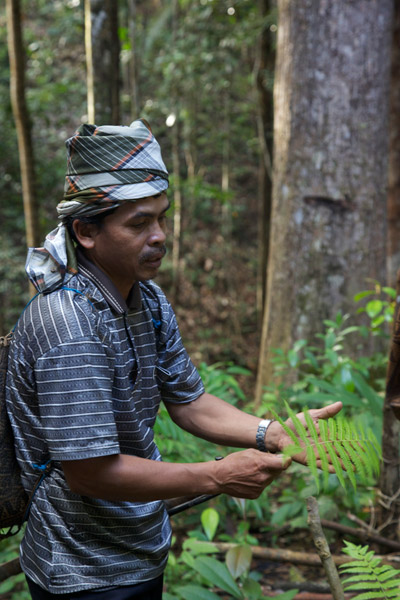
Medicine man Petrus Asuy shows one of the plants being grown in the community’s forest nursery (credit: EIA/Tom Johnson)
For more, see ‘That’s my river you’ve taken! Go away, this is our land!’.
Related articles
Indigenous community forcibly evicted for palm oil in Indonesian Borneo
(11/01/2011) A palm oil company has forcibly evicted an indigenous community from one of the last tracts of rainforest near Jempang in Indonesia’s East Kalimantan province on the island of Borneo, reports Telapak, a group that advocates community forest management.







